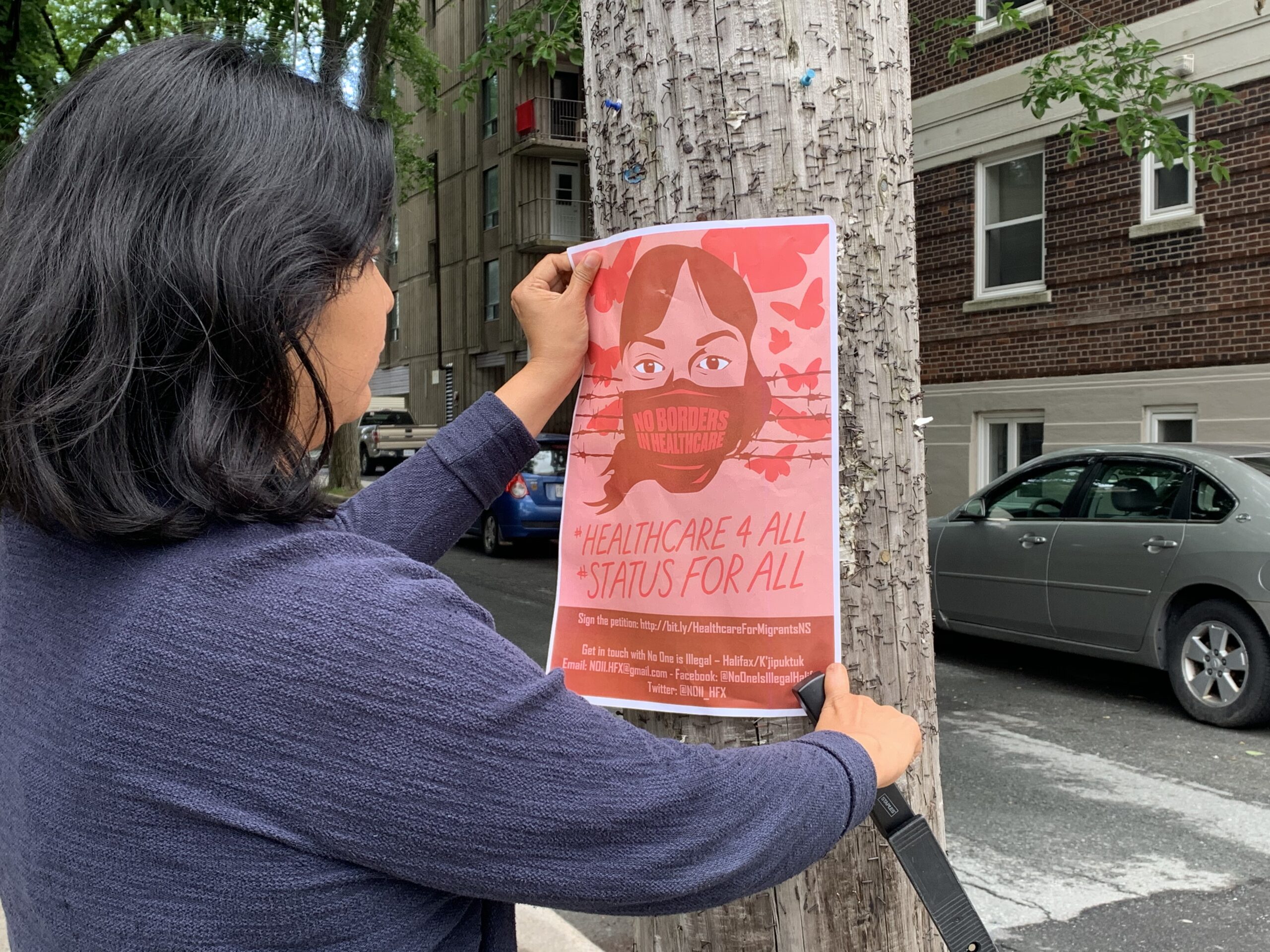
KJIPUKTUK (Halifax) – ““We were put in a hotel for 15 days … after that we were put in an abandoned church where there were 36 of us. It did not have bathrooms.” So reads one of the complaints by temporary foreign workers about working conditions in Nova Scotia lodged with the Mexican government.
The complaints came to light thanks to the work of then Star reporter Taryn Grant.
Another such complaint about a Nova Scotia workplace, this one from 2018, states, “The rooms have no windows and the beds are just metal frames with mattresses that are in a bad state. There are five rooms and two stoves for 14 people.”
Late last week the province announced that a migrant worker somewhere in western Nova Scotia tested positive for COVID-19. The worker had been self-isolating since arriving in the province, as required, the Health Department said in a news release Thursday.
COVID-19 has hit migrant workers hard. In Ontario alone three workers have died and some 800 have tested positive. Almost 1000 workers fell sick and three workers died at a large meatpacking plant in Alberta staffed predominantly by immigrants and temporary foreign workers. There have also been sizable outbreaks in British Columbia.
Crowded workplaces, pressure to come to work, lack of sick pay, and communal housing will do that.
A harrowing report, Unheeded warnings – COVID-19 and Migrant Workers, by the Migrant Workers Alliance for Change (MWAC) further highlights these working conditions, and makes for grim reading.
We know relatively little about working conditions faced by the 1,500 temporary workers in Nova Scotia, but what we do know is concerning.
I spoke with Stacey Gomez, an activist with No One Is Illegal – Halifax/K’jipuktuk.
The province’s press release refers to the worker struck by COVID-19 as having been self-isolating. What would that look like?
During the quarantine period, migrant workers can be housed in employer provided housing and some have been housed in retreat centres or hotels. Employers of migrant workers receive $1500 to offset the costs of quarantine, which can be used towards housing.
Employers are generally responsible for migrant worker housing and the conditions can vary. For years, there have been concerns that too often migrant workers are made to live in overcrowded and decrepit housing, and that continues to be the case during the pandemic. That’s why one of the recommendations from the MWAC report is a national housing strategy to ensure dignified living conditions for migrant workers across the board.
What are the reasons for the high COVID-19 infection rate among migrant workers in Canada?
We’ve seen migrant workers being impacted by COVID-19 from coast to coast, and that highlights that this is a systemic issue. It’s not a coincidence that so many migrant workers are becoming ill.
Much of that vulnerability points to the fact that they only have temporary status. Many workers come to Canada season after season, they’re part of our community, but they are only given temporary status here. And this puts them in a most vulnerable situation where they have fewer rights than other workers do.
Migrant workers are tied to one employer, by design of the program. If they were to speak out about terrible living or working conditions they could be fired, deported and blacklisted never to be hired again. These risks are only heightened during COVID-19. And, and so this places them in a really vulnerable situation.
I was reading an article from Quebec, where they said that compared to Canadian workers, migrant workers are two and a half times more productive than Canadians. But that’s not because they’re super human, it’s because often they’re overworked and exploited, and that’s by design.
Remember that these migrant workers make the difficult decision to leave their families behind, and they are risking their lives to come here to work, especially during a pandemic. Furthermore, migrant workers pay taxes, but once they’re outside of the country, they can’t qualify for benefits like CERB and EI.
I think the solution is status for all, enabling them to have the same rights as other workers do, including access to health care, access to public education, and the ability to be united with their families.
Talking about migrant workers, even at the best of times, causes feelings of xenophobia among some Canadians, and that is only amplified when you bring COVID-19 in the mix. How should we respond?
During most of the month of May there was a COVID-related ban on migrant workers in New Brunswick. Groups like No One Is Illegal Fredericton countered that migrant workers undergo self-isolation/quarantine just like anybody else coming from outside of the province and outside of the country, yet there was a specific exception made to exclude them altogether from coming here.
Similarly, the way the province of Nova Scotia asserted that this worker didn’t catch the virus here, I would challenge that. We can’t know that for sure. I am concerned when we paint racialized people as bringing illness into the country, because of the xenophobic sentiments it could provoke.
Yes, the work that migrant workers do is important and it’s essential, but it’s not always treated in that way. I participated in a press conference where a migrant worker from Quebec spoke and he said, “we come here to work, we don’t come here to die.”
Lots of the issues being raised are under federal jurisdiction. What should the province do?
No One is Illegal – Halifax/K’jipuktuk is calling for immigration status for all migrants, including migrant workers, as well as implementation of MWAC recommendations by both the McNeil and Trudeau governments.
Nova Scotia should ensure that employers are providing protective equipment to all workers that are working in group settings, Also, to ensure that workers are able to socially distance at work or at home. Provincial inspections should occur frequently and in person throughout the season, to ensure that there are adequate work and housing conditions. It’s the responsibility of both the federal government and the provincial government to make sure that there are no more migrant workers’ deaths.
See also: May Day 2019 in Halifax: Justice for all workers, including migrant workers
With a special thanks to our generous donors who make publication of the Nova Scotia Advocate possible.
Subscribe to the Nova Scotia Advocate weekly digest and never miss an article again. It’s free!



